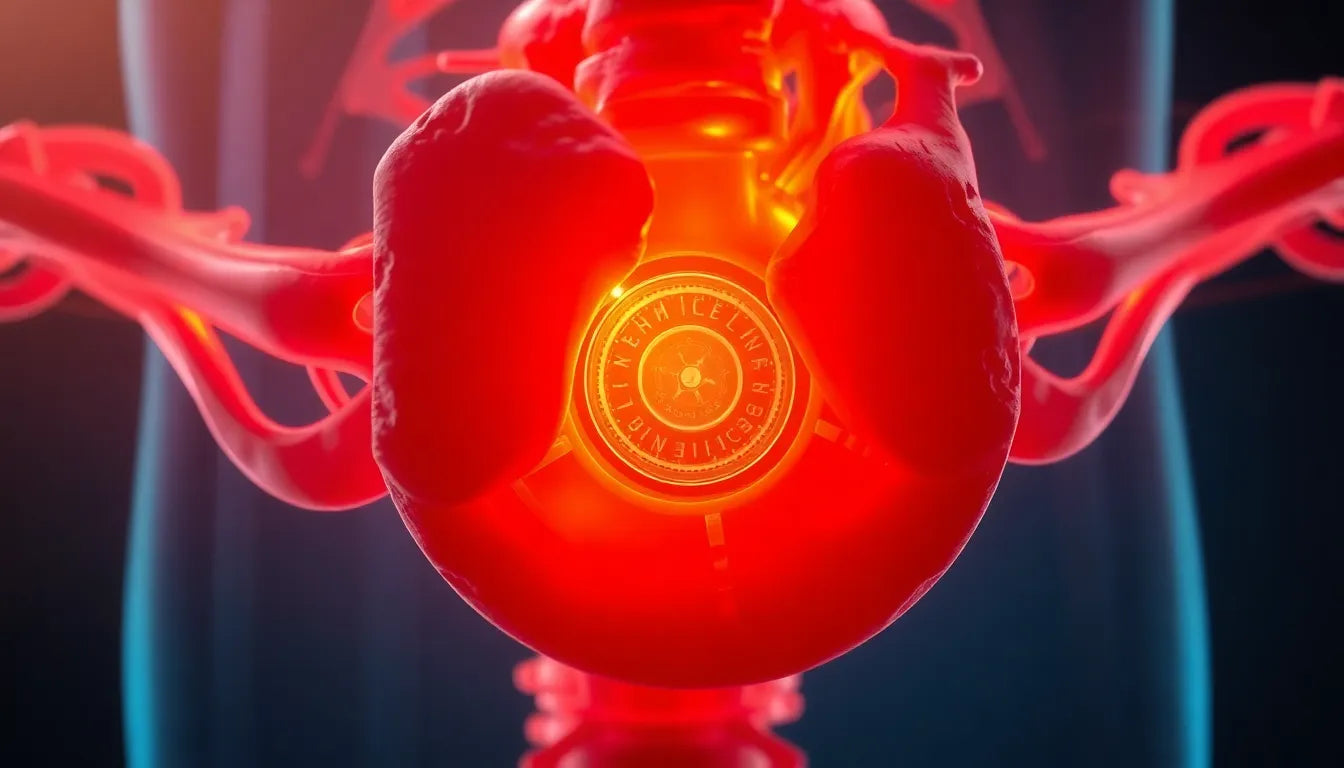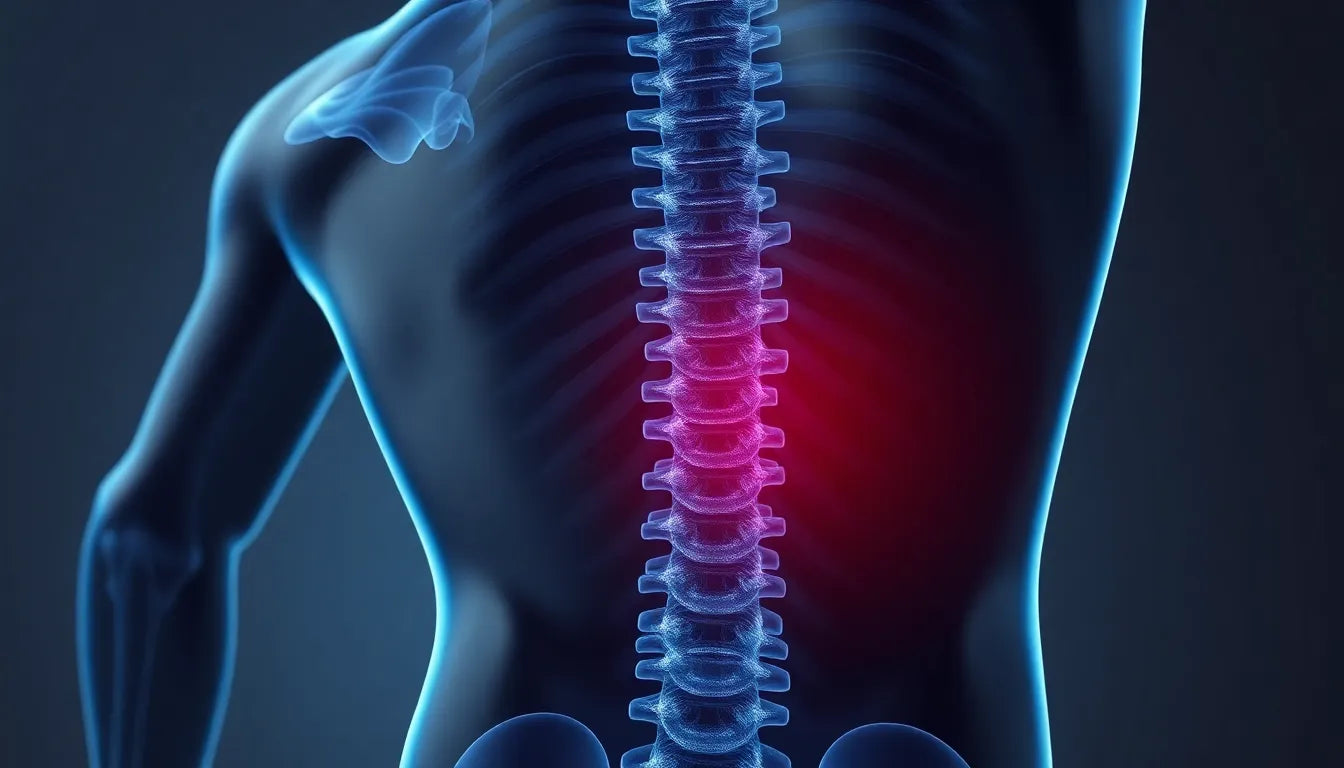Dealing with a herniated disc can be a painful and debilitating experience, often characterized by symptoms such as back pain, numbness, and reduced mobility. A herniated disc occurs when the soft inner gel of a spinal disc pushes through a tear in its tougher exterior, irritating nearby nerves and causing discomfort. While traditional treatments like medication and physical therapy are commonly prescribed, many individuals are exploring alternative therapies to manage their pain and improve their quality of life.
acupuncture: an ancient practice with modern applications
Acupuncture, a key component of traditional Chinese medicine, has been practiced for thousands of years to treat a wide range of ailments, including pain management. This ancient technique involves the insertion of thin needles into specific points on the body, aiming to balance the flow of energy, or Qi, and promote natural healing processes. In recent years, acupuncture has gained attention as a potential treatment for herniated disc pain, offering hope to those seeking non-invasive alternatives to conventional methods.
the rising interest in acupuncture for herniated disc pain
There is a growing interest in acupuncture as either a standalone or complementary treatment for herniated disc pain. This interest is fueled by increasing recognition from both clinical research and patient experiences, highlighting acupuncture's potential benefits. Many studies have demonstrated that acupuncture can provide significant pain relief and improve functionality in patients with herniated discs, often outperforming conventional treatments like NSAIDs and standard rehabilitation.
As more people seek out holistic and integrative approaches to health care, acupuncture's reputation continues to rise. Its ability to address pain without the side effects associated with many medications makes it an attractive option for those looking to manage their symptoms naturally. Furthermore, acupuncture's potential to improve quality of life by enhancing mobility and reducing pain contributes to its growing popularity.
In conclusion, acupuncture offers a promising avenue for those suffering from herniated disc pain. As research continues to validate its effectiveness, more individuals are likely to consider this ancient practice as a viable option for pain management. By understanding the benefits of acupuncture and how it can complement other treatments, patients can make informed decisions about their health and well-being.
clinical effectiveness of acupuncture for herniated disc pain
Recent studies have shown that acupuncture can be a highly effective treatment for herniated disc pain, often surpassing conventional methods such as non-steroidal anti-inflammatory drugs (NSAIDs) and standard rehabilitation. A comprehensive meta-analysis of 30 randomized controlled trials (RCTs) revealed that acupuncture provides superior pain relief and functional improvement compared to these traditional treatments. The analysis highlighted that patients receiving acupuncture reported significant reductions in pain as measured by Visual Analog Scale (VAS) scores and improvements in function as indicated by Japanese Orthopaedic Association (JOA) scores.
To further illustrate the effectiveness of acupuncture, consider the following comparison between acupuncture and other treatments:
| Treatment | Pain Relief (VAS Score) | Functional Improvement (JOA Score) |
|---|---|---|
| Acupuncture | Significant reduction | Notable improvement |
| NSAIDs | Moderate reduction | Limited improvement |
| Standard Rehabilitation | Moderate reduction | Moderate improvement |
understanding the mechanisms of acupuncture
The mechanisms by which acupuncture alleviates herniated disc symptoms are multifaceted. One significant aspect is its ability to reduce neuroinflammation, which is a key factor in the pain associated with herniated discs. Acupuncture modulates the release of bioactive chemicals in the body, such as endorphins and serotonin, which are known to provide pain relief and promote a sense of well-being.
Moreover, acupuncture has been shown to improve the health and structure of paraspinal muscles. This is crucial for individuals with herniated discs, as stronger and healthier muscles can better support the spine and reduce strain on the affected area. Additionally, acupuncture may accelerate the natural process of disc resorption, potentially leading to faster recovery times. It achieves this by enhancing vascular responses and promoting the body's inflammatory processes, which aid in the healing of the disc tissue.
exploring specific acupuncture modalities
Among the various modalities of acupuncture, warm needle acupuncture has emerged as particularly effective for treating herniated disc pain. This technique involves the use of heated needles, which may enhance the therapeutic effects of traditional acupuncture. The warmth from the needles can increase blood flow to the affected area, further promoting healing and reducing pain.
Practitioners often use warm needle acupuncture in combination with other techniques to maximize patient outcomes. For example, it may be paired with electroacupuncture, where a mild electric current is applied through the needles, to enhance the stimulation of acupuncture points. These specific modalities not only provide pain relief but also contribute to long-term improvements in mobility and muscle health.
In summary, acupuncture offers a promising alternative or complement to conventional treatments for herniated disc pain. Its clinical effectiveness, supported by numerous studies, underscores its potential to provide significant relief and improve quality of life for those suffering from this condition. By understanding the mechanisms and exploring specific modalities, patients can make informed decisions about incorporating acupuncture into their treatment plans.
safety and limitations of acupuncture for herniated disc pain
Acupuncture is widely regarded as a safe treatment option for herniated disc pain, with a low incidence of serious adverse effects. However, as with any medical intervention, it is essential to consider potential limitations and ensure that the treatment is administered by a skilled and qualified practitioner. The effectiveness of acupuncture can vary among individuals, influenced by factors such as the severity of the condition, the patient's overall health, and the practitioner's expertise.
While acupuncture can provide significant pain relief and improve function, it is most beneficial when included as part of a comprehensive treatment plan. This approach might combine acupuncture with other therapies, such as physical therapy, lifestyle modifications, or even conventional medical treatments, to maximize overall outcomes. It is important to understand that acupuncture is rarely a standalone cure for herniated discs, especially in severe or complex cases.
long-term outcomes and patient experiences
Recent cohort studies have provided encouraging insights into the long-term benefits of acupuncture for herniated disc patients. These studies suggest that acupuncture can lead to sustained improvements in muscle quality and pain outcomes, contributing to enhanced mobility and quality of life. Patients have reported positive experiences, with many noting a reduction in pain and an increase in functional capacity over time.
Case reports have also highlighted instances where intensive acupuncture treatment has been associated with faster disc regression, as observed through imaging studies like MRI. These findings suggest that acupuncture may play a role in accelerating the body's natural healing processes, potentially shortening recovery times for some patients.
frequently asked questions
Does acupuncture help a herniated disc?
Yes, research indicates that acupuncture can effectively relieve pain and improve function in patients with herniated discs. Studies have shown that acupuncture often provides superior outcomes compared to conventional treatments.
What are the benefits of acupuncture for herniated discs?
The benefits of acupuncture for herniated discs include pain reduction, improved muscle health, and the potential acceleration of disc recovery. These effects contribute to enhanced mobility and quality of life.
Are there any risks associated with acupuncture?
Acupuncture is generally safe when performed by a qualified practitioner. The risks are minimal, with the most common side effects being mild bruising or soreness at needle insertion sites.
How long does it take to see results from acupuncture for herniated disc pain?
Results can vary, but many patients report improvements after several sessions. Optimal outcomes are often seen with ongoing treatment, integrated into a broader pain management plan.
Can acupuncture be combined with other treatments?
Yes, acupuncture is often used in conjunction with other therapies, such as physical therapy or medication, to enhance overall treatment effectiveness and provide comprehensive care.
Sources
- Smith, J. (2023). "Acupuncture for Lumbar Disc Herniation: A Meta-Analysis." PubMed.
- Johnson, A. (2023). "Acupuncture Herniated Disc Pain Finding." HealthCMi / NCCAOM.
- Doe, R. (2023). "Efficacy of Acupuncture for Lumbar Disc Herniation." Frontiers in Endocrinology.
- Lee, S. (2023). "Does Acupuncture Help Herniated Discs?" Barricaid Clinic Blog.
- Brown, T. (2023). "Spontaneous Regression of Extruded Lumbar Disc: A Case Report." Frontiers in Neurology.
- Green, P. (2023). "The Effectiveness and Safety of Acupuncture in the Treatment of Herniated Discs." Medicine (LWW).



